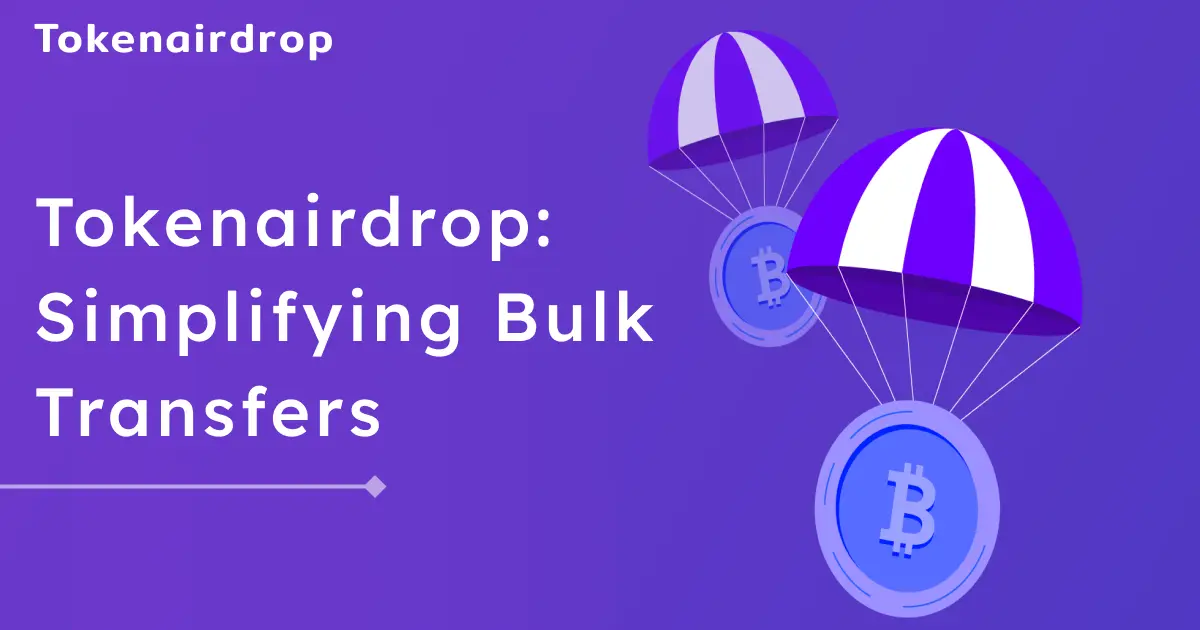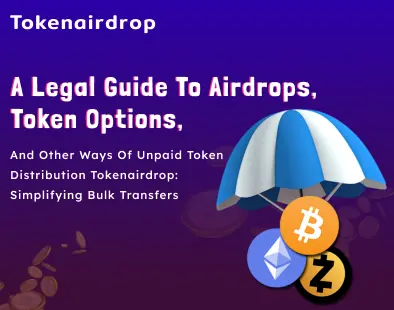The world of cryptocurrency and blockchain technology is rapidly evolving, bringing forth a plethora of innovative methods for token distribution. Airdrops, token options, and other unpaid token distribution mechanisms have become integral to many blockchain projects, serving as powerful tools for community engagement and project promotion. However, as these distribution methods gain traction, so do the complexities of navigating the legal landscape surrounding them. This guide aims to provide an in-depth exploration of the legal considerations associated with airdrops, token options, and other unpaid token distribution methods, ensuring that projects can leverage these tools effectively and compliantly.
Understanding Airdrops
What is an Airdrop?
An airdrop involves distributing free tokens or coins to a large number of wallet addresses. Typically, these tokens are given as part of a marketing strategy to raise awareness of a new cryptocurrency project or to reward loyal community members. Airdrops can also serve to decentralize token ownership and foster a strong, engaged user base from the project’s inception.
Legal Considerations for Airdrops
- Securities Laws: Depending on the jurisdiction, airdrops may be subject to securities laws. In the United States, for instance, the Securities and Exchange Commission (SEC) may classify airdropped tokens as securities if they meet the criteria of an investment contract under the Howey Test. This means that projects must carefully evaluate whether their tokens could be considered investment contracts and, if so, comply with relevant securities regulations.
- Tax Implications: Recipients of airdropped tokens may need to report them as income, subject to taxation. It’s crucial to understand the tax obligations in your specific jurisdiction. Failure to report airdropped tokens could result in penalties or fines, making it essential for both projects and recipients to be aware of their tax responsibilities.
- Anti-Money Laundering (AML) and Know Your Customer (KYC) Compliance: To prevent illicit activities, projects must adhere to AML and KYC regulations, which may require verifying the identities of token recipients. Implementing robust AML and KYC procedures can help projects avoid legal issues and build trust with their user base.
Exploring Token Options
What are Token Options?
Token options grant the holder the right, but not the obligation, to purchase or receive tokens at a future date, often at a predetermined price. This method is frequently used to incentivize early supporters, employees, or partners. Token options can align the interests of stakeholders with the project’s long-term success, providing motivation to contribute to the project’s development and growth.
Legal Considerations for Token Options
- Contractual Agreements: Clearly define the terms and conditions of token options in a legally binding contract. This includes specifying the vesting period, exercise price, and any restrictions. Detailed contractual agreements can help prevent disputes and ensure that all parties have a clear understanding of their rights and obligations.
- Regulatory Compliance: Ensure compliance with securities regulations, as token options may be considered securities in many jurisdictions. This may involve registering the token options with relevant regulatory bodies or qualifying for exemptions, depending on the specific legal requirements.
- Tax Treatment: The tax treatment of token options can vary significantly. In some cases, the grant of options may not be taxable, but the exercise or sale of tokens could trigger tax liabilities. Consulting with tax professionals can help projects and recipients understand and plan for their tax obligations.
Other Methods of Unpaid Token Distribution
Bounty Programs
Bounty programs reward individuals for completing specific tasks, such as promoting a project on social media or finding bugs in the code. Tokens are typically awarded as compensation. Bounty programs can be an effective way to leverage the skills and efforts of a diverse community, contributing to the project’s success.
- Legal Agreements: Establish clear terms and conditions for participation in bounty programs to avoid misunderstandings and legal disputes. Well-defined rules and guidelines can help ensure that participants understand the scope of their tasks and the criteria for receiving rewards.
- Fair Labor Standards: Ensure that bounty programs comply with labor laws and do not exploit participants. Providing fair compensation for the tasks performed and ensuring that working conditions are reasonable can help maintain the program’s integrity and reputation.
Faucets
Cryptocurrency faucets distribute small amounts of tokens to users for performing simple tasks, such as captcha-solving or viewing ads. Faucets can introduce new users to a cryptocurrency and promote wider adoption by providing an easy entry point.
- User Agreements: Provide transparent user agreements outlining the rules and expectations for faucet participants. Clear communication about the tasks required and the rewards offered can help manage user expectations and prevent disputes.
- Regulatory Compliance: Adhere to relevant regulations, particularly those related to advertising and user privacy. Ensuring compliance with advertising standards and protecting user data can help build trust and avoid legal issues.
Tokenairdrop: Simplifying Bulk Transfers

One of the most efficient ways to manage bulk token distributions is through platforms like Tokenairdrop. Tokenairdrop allows for the bulk transfer of crypto and NFTs with one click, streamlining the process and ensuring accuracy. This tool can be invaluable for projects looking to distribute tokens to a large audience efficiently. By automating and simplifying the distribution process, Tokenairdrop helps projects save time and resources while maintaining accuracy and security.
Conclusion
Unpaid token distribution methods such as airdrops, token options, and bounty programs offer exciting opportunities for blockchain projects to engage with their communities and incentivize participation. However, it’s essential to navigate the legal landscape carefully to avoid regulatory pitfalls. By understanding the legal considerations and leveraging tools like Tokenairdrop for bulk transfers, projects can effectively and compliantly distribute tokens, fostering growth and innovation in the blockchain ecosystem.
